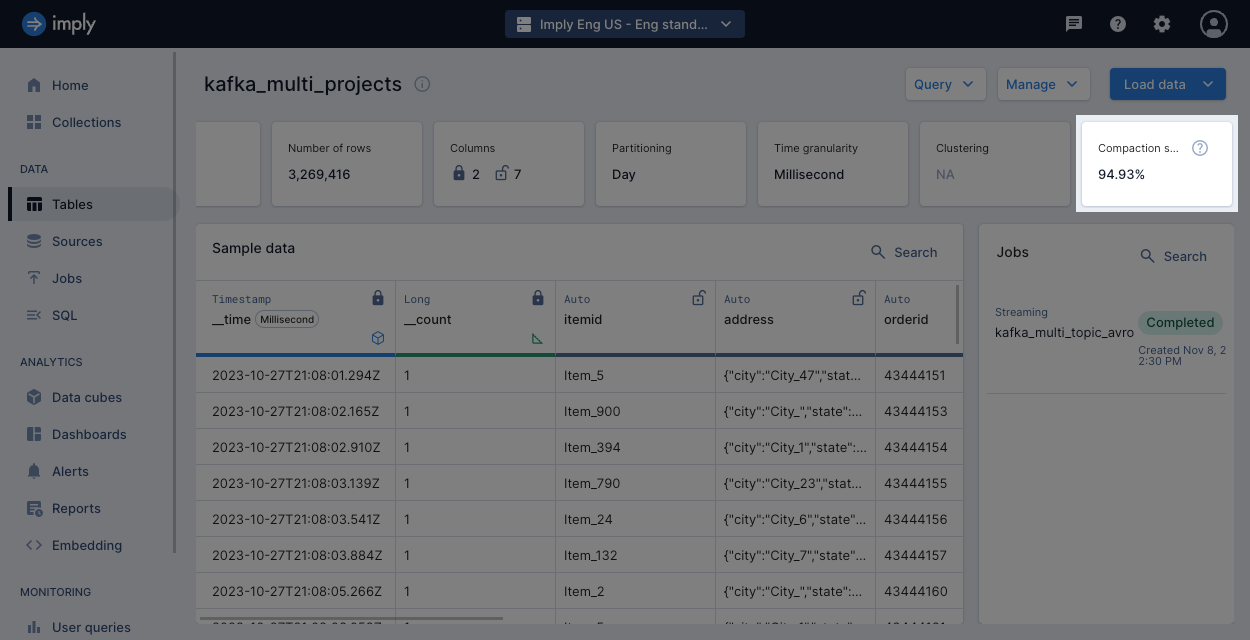Automatic compaction in Imply Polaris
Imply Polaris automatically compacts your data in order to improve query performance without sacrificing data quality. This process is known as automatic compaction. For example, if you change the rollup granularity on an aggregate table to a coarser granularity, automatic compaction changes how the underlying data is stored and can reduce storage space. For the details of how automatic compaction works, see Automatic compaction.
By default, Polaris enables automatic compaction for a table and configures it for optimal performance. You don't need to manually tune the compaction process.
Polaris disables automatic compaction for tables that are used as lookup sources.
View compaction status
You can view details about a table's compaction status in the Compaction status tile of the table view:

A higher percentage generally indicates more efficient data storage.
To view compaction details in the API, issue a GET request to get table details.
Polaris returns the total number of compacted bytes in segmentCompactedBytes. Use this value with segmentTotalBytes to obtain
the percentage of compacted bytes.